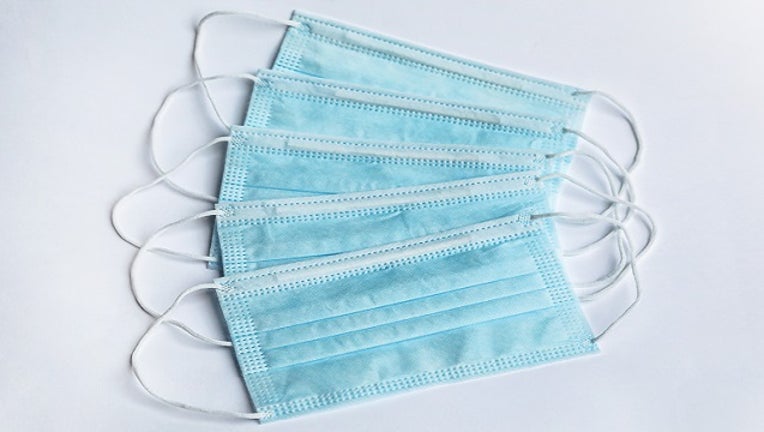UW Health experts: Busting mask myths one question at a time

(Photo by Beata Zawrzel/NurPhoto via Getty Images)
MADISON, Wis. - UW Health and University of Wisconsin School of Medicine and Public Health experts are helping you separate fact from fiction when it comes to wearing a mask as a means of protection against COVID-19.
Myth: Does wearing a mask cause someone to breathe in unsafe levels of carbon dioxide?
Fact: No, face coverings like medical masks, cloth face coverings, neck gators and hand-made masks are designed to be breathed through. In addition, medical professionals have been wearing masks for years ‒ even more so during the pandemic ‒ and there has been no evidence to suggest that carbon dioxide is a problem, according to Jeff Pothof, MD, chief quality officer at UW Health.
Myth: Since the Centers for Disease Control say that cloth masks won’t protect someone from breathing air pollutants, like the recent wildfire smoke in the western United States, then it cannot protect against COVID-19.
Fact: No, these are not comparable circumstances, according to Ajay Sethi, PhD, master of public health program faculty director and associate professor of population health sciences, UW School of Medicine and Public Health.
The air in the western United States became so polluted from the wildfires that residents must wear N95 respirator masks to protect from breathing in smoke, ash and particulates which are much smaller than the droplets that COVID-19 are carried in. The N95 mask protects wearers against air pollution and airborne illnesses like COVID-19.
FREE DOWNLOAD: Get breaking news alerts in the FOX6 News app for iOS or Android
A cloth mask has a different purpose, Sethi said. When someone with COVID-19 breathes out air, most of the coronavirus is in the respiratory droplets that are produced when talking, coughing, sneezing or singing. Since many people with COVID-19 are unaware they have it, the opportunity for spreading the coronavirus to others is significantly less when everyone in proximity of each other wear cloth masks, he said.
A news release said UW Health and the School of Medicine and Public Health urge the public to stay safe by following these key guidelines:
- Practice physical distancing by staying at least six feet away from people who do not live in your household.
- Wear a face mask if you plan to be around people who do not live in your household.
- Stay home whenever possible. Limit outings to essential needs such as groceries, exercise, medication, healthcare visits or essential work.
- If you have any symptoms (e.g., fever, cough, sore throat) stay home, physically distance and call your provider about getting tested.
- Do not attend large gatherings.
- Wash your hands frequently with soap and water for at least 20 seconds.
Related
Gov. Evers extends Wisconsin mask mandate until Nov. 21
Gov. Tony Evers on Tuesday extended a statewide mask mandate until Nov. 21.
Related
City of Milwaukee names Marlaina Jackson as interim health commissioner
Marlaina Jackson will serve as the next City of Milwaukee Commissioner of Health effective at 12:00 a.m. on Wednesday, Sept. 23.
Related
DHS: 1,271 new positive cases of COVID-19 in WI; 2 new deaths
State health officials reported 1,271 new positive cases of COVID-19 in Wisconsin Monday, Sept. 21, and two new deaths.




